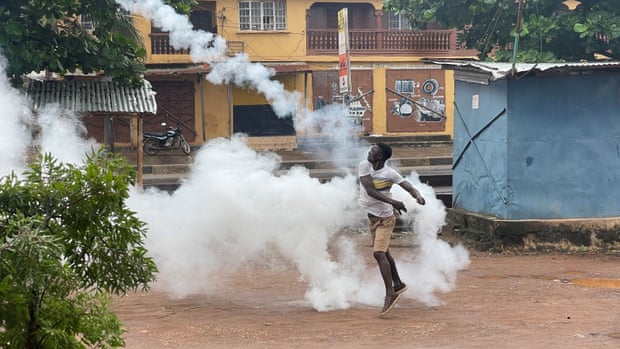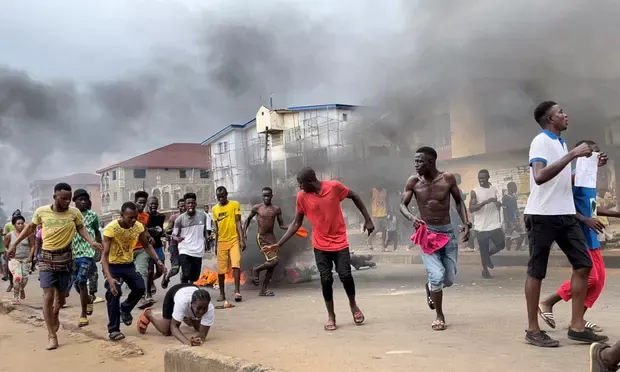As workers cleared broken glass from the shattered windows of Mohamed Sillah’s restaurant in Freetown, he described the events of last week, when rare protests against soaring inflation and the rising cost of living shook the capital of Sierra Leone.
“It was an explosion of violence,” Sillah said of the damage inflicted on his and other buildings. “We don’t usually see this in Sierra Leone but we are in tough times.”
Read Also: Vice News - The 'Most Toxic City in Africa'
Businesses, government offices and buses across eastern Freetown were charred or destroyed completely in the violence as police and security officials brutally cracked down on demonstrators. At least 21 protesters and six officers were killed. A video verified by Reuters shows police firing live ammunition into the crowds.
Protests are usually restricted in the tiny west African country, where most of the country’s 8 million people live in poverty. But like many other African countries Sierra Leone has been particularly badly affected by rapid inflation caused in part by the war in Ukraine. And it was the dire economic situation that brought people out on to the streets.

A demonstrator throws a gas canister during an anti-government protest in Freetown on 10 August. Photograph: Picture obtained by Reuters/Reuters
In the week following the protests, police and army convoys patrolled the busy commercial streets in the districts of Rokupa, Makeni and Kamakwie where Freetown’s protests took place. A tense calm settled, with ordinary life gradually returning.
The government has partly blamed the opposition for the protests, branding them an attempted coup, and launching an inquiry into alleged organisers. However, protesters interviewed by local media described their movement as “faceless” rather than orchestrated by one group, and reflective of widespread discontent.
President Julius Bio dismissed the idea that the protests were reflective of public anger. “This was not a protest against the high cost of living occasioned by the ongoing global economic crisis,” he said. “The chant of the insurrectionists was for a violent overthrow of the democratically elected government.”
But on the ground it is clear that many people shared the protesters’ grievances.




